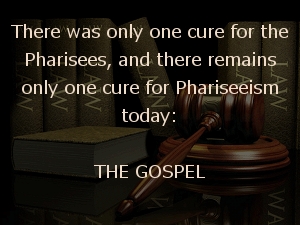Homeschooling: Why We Did It, Why We Stopped

If you’re a parent wrestling with the pros and cons of educational options for your children, my wife and I can sympathize. A few weeks ago we officially enrolled in a local Christian school (a classical academy). It will be the first year our children have attended school outside of our home.
So why have we quit? Why did we choose homeschooling in the first place? Perhaps the answers to these questions will be helpful to some parents who are trying to sort out what they ought to do.
Why we homeschooled
Four reasons come to mind when I look back on why we chose homeschooling.
Discussion
Maranatha Baptist Bible College Launches Maranatha Virtual Academy
Body
Discussion
Are Rules Dangerous? Part 2
 Read Part 1
Read Part 1“Rules were meant to be broken,” an old adage goes. Christians tend to have a different attitude, but we recognize a kernel of truth in the folk wisdom. Rules are just so often wrong-headed, excessive, or motivated by foolish fears or lust for power. Sometimes they get in the way of the very things they are intended to accomplish.
Christian ministries can have too many rules and develop a cold, offense-focused culture. They can also err by according some rules a spiritual significance and power they don’t possess. These problems require that we give serious thought to what rules we have and what they are really accomplishing. But we should not overreact to the excesses and errors, criticize rules systems too broadly and blame them for problems that have other causes.
In Part 1 of this series, I presented two arguments for valuing rules more than most young Fundamentalists are inclined to. Here, I offer a third argument, then respond to some objections.
Discussion
Are Rules Dangerous? Part 1
 “Young Fundamentalists” are generally not fond of rules, especially in ministry settings. Exactly why this is the case is an interesting study in itself. Perhaps it’s due to the fact that many of them grew up in rules-heavy Christian schools in an era full of glowing idealism about what these highly-disciplined, conscientiously spiritual educational environments would produce. The inflated hopes of those days were sure to result in disappointment. And maybe the current rules angst is the result of a generalized disgust with the whole concept and all that seems connected to it. In defense of those who feel this way, it is only too easy to find examples of rules excesses and absurdities.
“Young Fundamentalists” are generally not fond of rules, especially in ministry settings. Exactly why this is the case is an interesting study in itself. Perhaps it’s due to the fact that many of them grew up in rules-heavy Christian schools in an era full of glowing idealism about what these highly-disciplined, conscientiously spiritual educational environments would produce. The inflated hopes of those days were sure to result in disappointment. And maybe the current rules angst is the result of a generalized disgust with the whole concept and all that seems connected to it. In defense of those who feel this way, it is only too easy to find examples of rules excesses and absurdities.
Whatever the reasons, young Fundamentalists are often eager to cast “man-made rules” in a negative light and to argue from Scripture that these rules are dangerous at best, and downright hostile to Christian growth at worst.
My aim here is to offer a “young Fundamentalist” perspective that differs from that of many of my peers, but one that I believe answers better to Scripture and wisdom.
Discussion
Legalism and the Christian School Movement, Part 2
 Note: Reading Part 1 of this series is recommended before reading Part 2.
Note: Reading Part 1 of this series is recommended before reading Part 2.Background
In the introductory article to this series, I suggested that Christ’s confrontations with the Pharisees are a valid source for determining whether or not we are practicing legalism.
Discussion
Legalism and the Christian School Movement, Part 1
 Introduction
Introduction
Last May, discussion here at SI about Heritage Christian School in Findlay, OH and the senior who chose a public high school prom over his own graduation ceremony revealed a rift on the issue of legalism. The majority were certainly comfortable with the rule against students attending a high school prom. But some thought such rules were legalistic.
 Note: Reading
Note: Reading 
Discussion